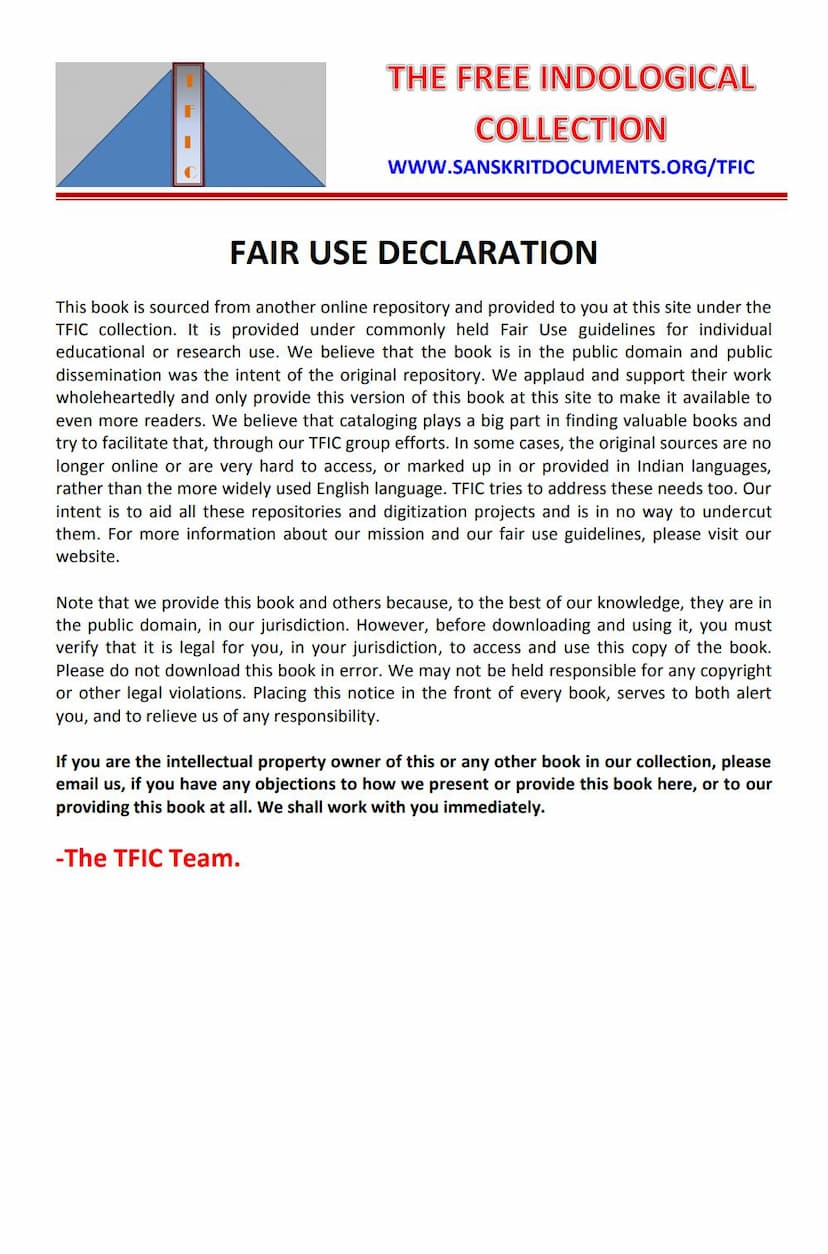Jinaharsh Granthavali
Added to library: September 2, 2025

Summary
The Jinaharsha Granthavali, edited by Agarchand Nahta and published by Sadul Rajasthani Research Institute Bikaner, is a significant compilation of Jain literary works. The book is dedicated to preserving and disseminating ancient and important Jain literary creations, particularly in RajasthAni and Hindi languages.
The institute, established in 1944 under the inspiration of Shri K.M. Panikkar and the patronage of Maharaja Shri Sadulsinhji Bahadur, has been actively involved in various literary endeavors. These include the creation of a comprehensive Rajasthani-Hindi dictionary, a Rajasthani idiom dictionary, and the publication of modern Rajasthani works. The institute also publishes the renowned research journal 'Rajasthan Bharti,' which features articles on Rajasthani language, literature, archaeology, history, and art.
The Jinaharsha Granthavali specifically focuses on the works of Sukavi Jinharsh, a prominent Jain poet of the 18th century. Jinharsh was a disciple of Vachak Shri Shantibharshji and belonged to the Khartar Gaccha lineage. He was a prolific writer who contributed immensely to Rajasthani, Hindi, and Gujarati literature, primarily composing in Prakrit, Sanskrit, and vernacular languages. His works, often based on Jain Prakrit and Sanskrit narratives, include various forms of poetry such as Rasas and Chaupais.
Jinharsh's literary output is vast and diverse, encompassing a wide range of themes and styles. His compositions are noted for their:
- Religious Devotion: Many of his works express deep devotion to Jain Tirthankaras and Acharyas, reflecting his strong faith and the didactic purpose of Jain literature.
- Love and Separation: He extensively explores themes of love and the pangs of separation in his poetry, often through poignant descriptions of the emotional states of the characters.
- Moral and Didactic Content: Jinharsh's poetry often carries moral teachings and philosophical insights, aiming to guide and enlighten the readers towards righteous living and spiritual liberation.
- Linguistic Versatility: He demonstrated remarkable command over multiple languages, including Rajasthani, Hindi, and Gujarati, with his later works showing a notable influence of Gujarati due to his extended stay in Gujarat.
- Adaptation of Literary Forms: Jinharsh utilized various traditional poetic forms like Rasas, Chaupais, Stavan, Sajjhay, Geet, Saloko, Nisani, Chhand, Doha, Kavitta, Barahmasa, Bahuttari, Bavani, Chhattisi, Pachisi, and Chauvisi, showcasing his literary versatility.
The collection includes over 400 of Jinharsh's shorter works, covering a wide spectrum of his literary contributions. The book highlights the impact of Jinharsh's poetry on subsequent generations of poets and emphasizes the need for further research into his extensive literary legacy, which includes many unpublished Rasas and character poems.
The preface also acknowledges the invaluable contribution of Jain scholars and institutions in preserving Indian knowledge, especially the vast and significant body of Rajasthani literature that has survived primarily through Jain Bhandars. It recognizes the efforts of scholars like Professor Manohar Sharma for his insightful introduction to the work.
In essence, the Jinaharsha Granthavali serves as a testament to the rich literary heritage of Jainism and the significant contributions of poets like Jinharsh to Indian literature, particularly in enriching the Rajasthani and Gujarati literary landscapes. The compilation aims to make these valuable works accessible to scholars, researchers, and enthusiasts of Jain literature.